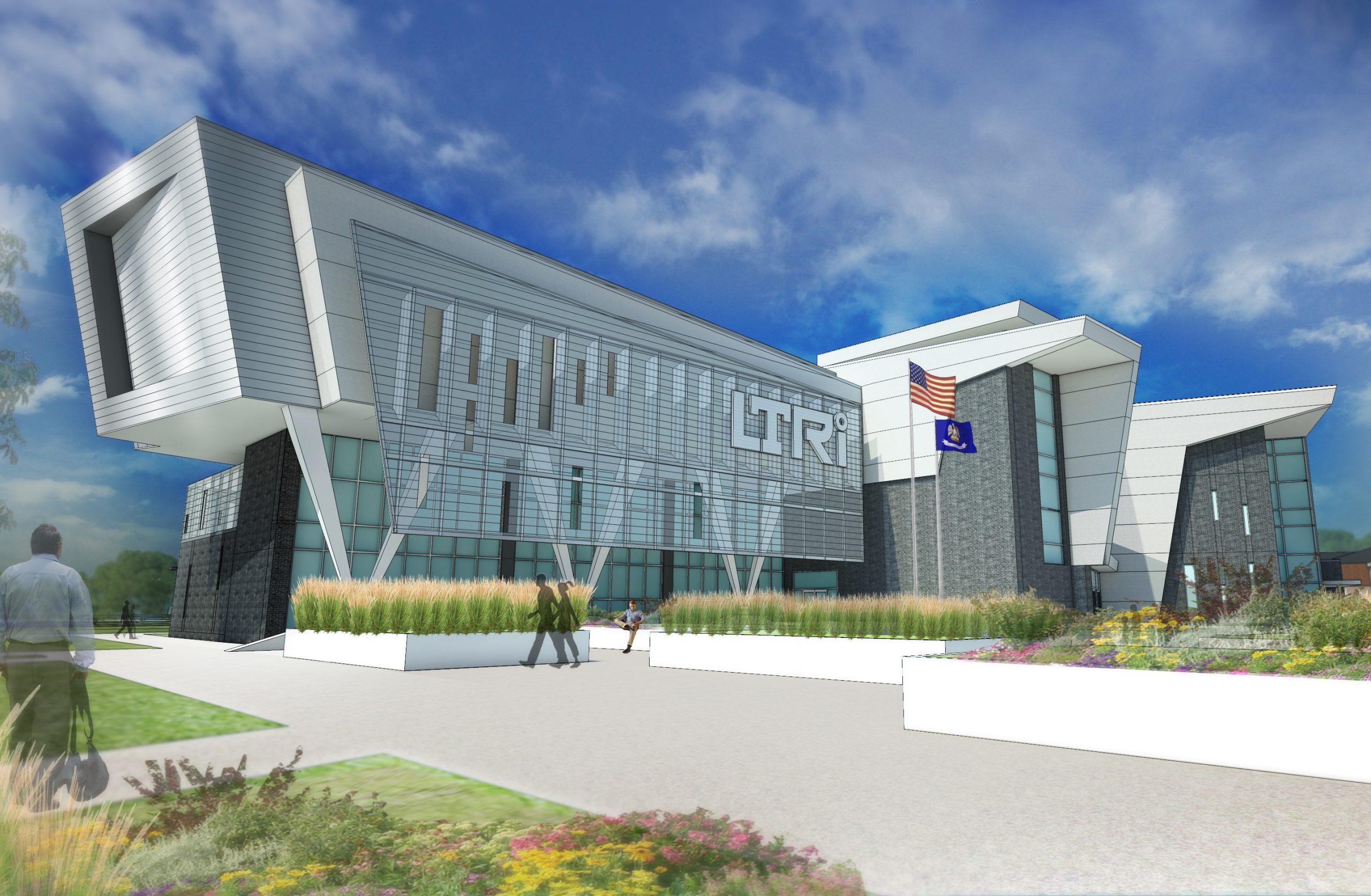The newest addition to the National Cyber Research Park is making progress towards breaking ground next year.
Designs for the Louisiana Tech Research Institute (LTRI) building are complete, and an executive director has come on board.
The dormant project came to life last September when the Bossier City Council approved an ordinance that would appropriate $700,000 from the sale of approximately 13 acres in the East Bank District to finish the designs for the building.
“This will put us in the situation to be fundable. It’s like a state project — in order to get funding, you have to be shovel ready. This gets us ready to go seek funding,” Bossier City Attorney Jimmy Hall said at the time.
LTRI is a joint effort between the Cyber Innovation Center (CIC) and Louisiana Tech to expand the knowledge-based, 21st century workforce by advancing public/private partnerships, accelerating applied research and development, and promoting the commercialization of technology in the areas of cyber, energy, and resiliency.
Capital funding has been budgeted by the state, but funding issues put the project on hold for several years. However, LTRI is gaining momentum towards having its own physical location.
Mike McSwain, who compiled the designs for the LTRI building, confirmed the designs are complete and construction documents are complete, too.
Craig Spohn, executive director of the CIC, said progress is continuing to be made on the building with construction beginning next year.
“We are confident we will have private and state funding available for that, and we look forward to bidding and building that project next year,” he said.
In July, LTRI welcomed Brigadier General Gerald Goodfellow (Ret.), a 30-year Air Force veteran, as its executive director.
Gen. Goodfellow will bring his experience as director of Strategic Plans, Programs, and Requirements at Air Force Global Strike Command located at Barksdale Air Force Base to the new position. He spent much of his career educating and training military members and civilians including time as a professor of strategy and planning at the U.S. Army War College where he instructed Army, Air Force, Navy, and Marine Corps Officers, as well as civilian senior-level employees with the U.S. government.
“We look forward to LTRI becoming a continually growing enterprise under Goodfellow’s leadership. Partnerships are core to Louisiana Tech’s culture, and LTRI’s cooperative collaboration with other partners will directly benefit northwest Louisiana and the nation. Goodfellow’s leadership will be crucial in cultivating unique partnerships, building and delivering new educational content, and promoting and extending novel research and development opportunities through LTRI,” Dr. Les Guice, president of Louisiana Tech University, said in a column submitted to BIZ. Magazine.
A non-profit 501c3 corporation currently operating out of the CIC, LTRI was created to solve national strategic challenges, specifically focusing on advancing basic research to applied research and ultimately to technology commercialization. This is all aimed at generating public and private investment and entrepreneurship that creates new companies in the knowledge based workforce.
LTRI will allow creation of a workforce that will modernize the nation’s nuclear capabilities, which has clear ties back to Barksdale and US Air Force Global Strike Command.
“I’m working with Les Guice on a workforce development plan like we have for cyber. This building and its partial use is intended to backstop some of the needed support for nuclear modernization,” Spohn told BIZ. Magazine last year.
Spohn said the reestablishment of that type of workforce “is not dissimilar to what we’re doing in cyber.” Specifically, how the CIC partnered with local universities to create tech degree pathways that now feed companies like GDIT in the National Cyber Research Park.

